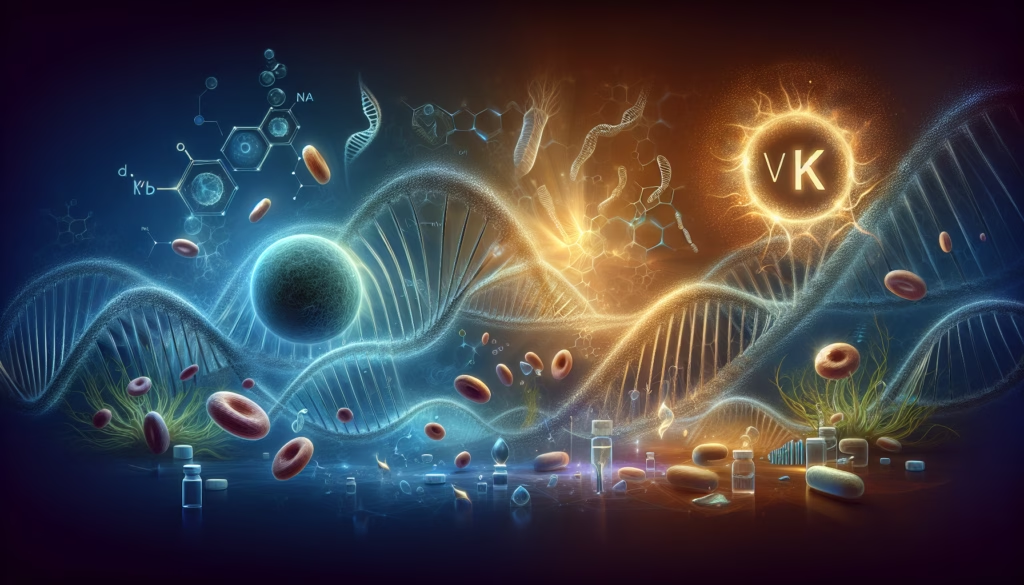
Beta Glucan
Discover the science-backed potential of beta glucan as an adjunct in cancer therapy. This post delves into the latest research
Click 
Preclinical studies have demonstrated promising anti-cancer properties of ursolic acid; however, clinical evidence in humans remains limited. Further research is essential to elucidate its therapeutic potential.
Molecular Mechanisms: Ursolic acid interacts with multiple molecular targets within cells, including:
NF-κB: This protein complex regulates inflammation, cell survival, and proliferation. Ursolic acid inhibits NF-κB activation, potentially suppressing cancer cell growth and inflammation.
PI3K/Akt/mTOR pathway: This signalling cascade is crucial for cell growth, survival, and metabolism. Studies indicate that ursolic acid can inhibit this pathway, potentially inducing apoptosis (programmed cell death) in cancer cells and disrupting their growth patterns.
Metabolic Interactions: While direct research on ursolic acid’s impact on cancer metabolism is limited, emerging studies suggest it may influence glucose uptake and utilisation in cancer cells, potentially disrupting their energy supply and metabolic processes. This aligns with the growing interest in targeting cancer metabolism as a therapeutic strategy.
Key Research Findings: Preclinical studies demonstrate ursolic acid’s ability to inhibit the growth of various cancer cell lines in laboratory settings, including breast, lung, and colon cancer. These findings require further validation through rigorous human clinical trials to establish efficacy and safety.
Relation to Metabolic Theory of Cancer: The metabolic theory of cancer proposes that cancer arises from mitochondrial dysfunction and altered cellular metabolism. While ursolic acid’s observed effects on glucose metabolism might align with this theory, further research is necessary to establish a definitive link and its potential implications for cancer treatment.
In clinical settings, ursolic acid has been administered intravenously in doses up to 130 mg/m² without severe adverse effects, but these studies are limited and primarily focused on safety rather than efficacy12. The long-term safety of ursolic acid remains unclear, and potential side effects include liver enzyme elevation, nausea, and abdominal distension32.
Breast Cancer, Colorectal Cancer, Lung Cancer
Ursolic acid, a natural triterpenoid, has been studied for its potential health benefits, including anticancer properties. However, its long-term safety is not well established, and there are limited data on its side effects in humans. Some reported side effects from short-term studies and animal models include:
Liver Enzyme Elevation: Studies have noted elevations in liver enzymes such as ALT and GGT, indicating potential liver stress35.
Abdominal Distension: Mild to moderate abdominal swelling has been observed in some patients35.
Nausea: Gastrointestinal discomfort, including nausea, is a common side effect58.
Skin Rash: Some individuals may experience skin rashes or itching8.
Other Effects: Other reported side effects include diarrhoea, headache, and fatigue8.
It’s important to note that ursolic acid can interact with medications, potentially affecting their metabolism, especially those processed by the liver7. Due to the lack of extensive clinical trials, the full spectrum of side effects and long-term safety of ursolic acid remain unclear. Therefore, it is advisable to consult with a healthcare professional before using ursolic acid supplements.
Combination therapies involving ursolic acid have shown promising results in enhancing its anticancer effects. Here are some key points about these combinations:
Enhancing Chemotherapy Efficacy:
Oxaliplatin: Ursolic acid has been shown to enhance the therapeutic effects of oxaliplatin in colorectal cancer by increasing apoptosis and reactive oxygen species (ROS) production, while inhibiting drug resistance genes2.
Capecitabine: The combination of ursolic acid with capecitabine resulted in greater inhibition of tumor growth and metastasis in colorectal cancer models compared to either agent alone5.
Cisplatin: Ursolic acid exhibited a synergistic cytotoxic effect with cisplatin on osteosarcoma cells, reducing tumor growth in a mouse xenograft model6.
Gemcitabine: In pancreatic cancer, ursolic acid enhanced the chemosensitivity of gemcitabine by inducing apoptosis and autophagy7.
Synergistic Effects with Other Compounds:
Resveratrol: The combination of ursolic acid and resveratrol was more effective than either compound alone in inhibiting skin tumor promotion by modulating multiple signaling pathways3.
Mechanisms of Action:
Potential Benefits:
Combination therapies may offer enhanced efficacy with potentially lower doses of conventional drugs, reducing side effects while improving treatment outcomes.
Overall, while these combinations show promise, further clinical trials are needed to validate their safety and efficacy in humans.
There is limited specific information available on the quality of life impact of ursolic acid in people taking it, particularly in the context of cancer treatment. However, based on its potential benefits and mechanisms of action, here are some possible effects:
Anti-inflammatory and Antioxidant Effects: Ursolic acid’s anti-inflammatory and antioxidant properties might help reduce oxidative stress and inflammation-related symptoms, potentially improving overall well-being and quality of life.
Cancer Cachexia: A recent study found that ursolic acid alleviates cancer cachexia and prevents muscle wasting by activating SIRT1, which could significantly improve quality of life for patients experiencing this condition2.
Metabolic Effects: Ursolic acid may influence metabolic pathways, potentially affecting energy levels and reducing fatigue, though this is speculative and requires further research.
Potential for Reduced Side Effects: If used in combination with conventional therapies, ursolic acid might help mitigate some side effects by enhancing the efficacy of lower doses of chemotherapy drugs, though this is based on preclinical data and needs clinical validation.
To fully understand the quality of life impact of ursolic acid, more clinical trials focusing on patient-reported outcomes and quality of life assessments are necessary.
We’ve done our best to include as much information as possible for this supplement.
If you have any other questions, please send us a message or join our Skool Group and ask our knowledgeable and friendly community.
Ursolic acid is readily available as a dietary supplement in various formulations. However, its regulatory status and accessibility for potential therapeutic use in cancer treatment may vary significantly across different countries. Dietary supplements are not regulated as strictly as pharmaceutical drugs.
There is limited data on the specific patient demographics that respond best to ursolic acid. Most studies on ursolic acid are preclinical, focusing on its effects in cell cultures and animal models rather than specific human populations. However, some insights can be inferred from its general mechanisms of action and the conditions it has been studied for:
Cancer Types: Ursolic acid has shown potential in various cancer types, including breast, lung, prostate, and colorectal cancer. Its effectiveness might be more pronounced in cancers where it can modulate specific signaling pathways like PI3K/Akt and NF-κB46.
Age and Gender: There is no specific data indicating that ursolic acid is more effective in certain age groups or genders. However, cancer incidence and response to treatments can vary by age and gender, which might influence outcomes.
Metabolic Conditions: Ursolic acid has been studied for its benefits in metabolic disorders, such as obesity and diabetes. It may be more beneficial for individuals with these conditions due to its effects on glucose metabolism and insulin sensitivity38.
Combination Therapies: The effectiveness of ursolic acid might be enhanced when used in combination with other therapies, potentially benefiting patients who are undergoing conventional treatments like chemotherapy6.
Resistance mechanisms to the effectiveness of ursolic acid in treating cancer are not extensively documented, but several potential pathways and cellular adaptations could contribute to reduced efficacy:
Drug Efflux Pumps: Cancer cells might upregulate efflux transporters like P-glycoprotein (P-gp) to reduce intracellular concentrations of ursolic acid, similar to other chemotherapeutic agents1.
Metabolic Adaptation: Cells could enhance the metabolism of ursolic acid through increased expression of phase II enzymes, leading to faster clearance and reduced effectiveness1.
Alternative Signaling Pathways: Cancer cells may activate compensatory signalling pathways to bypass the inhibitory effects of ursolic acid on key pathways like PI3K/Akt or NF-κB56.
Epigenetic Changes: Long-term exposure to ursolic acid might induce epigenetic modifications that confer resistance, though this is speculative and requires further investigation1.
Antioxidant System Modulation: Paradoxically, some cancer cells might adapt to ursolic acid’s pro-oxidant effects by upregulating their antioxidant defenses, potentially reducing its effectiveness7.
Tumor Microenvironment Factors: The tumor microenvironment could influence ursolic acid’s bioavailability or activity within the tumor, affecting its efficacy6.
To overcome these potential resistance mechanisms, strategies such as combination therapies with other drugs or the development of derivatives with improved bioavailability are being explored46.
Numerous preclinical studies have investigated ursolic acid in vitro and in vivo, demonstrating anti-cancer effects in various cancer cell lines and animal models. These studies have explored its impact on cell proliferation, apoptosis, and metastasis. However, these findings need further validation through well-designed human clinical trials to establish their relevance and potential therapeutic applications.
At the time of writing, there are no active clinical trials investigating ursolic acid as a primary treatment for cancer. This underscores the need for well-designed clinical studies to evaluate its potential therapeutic applications. clinicaltrials.gov
Ursolic acid’s mechanisms of action involve modulating various signalling pathways, such as the PI3K/Akt/mTOR pathway, which are influenced by genetic factors in cancer cells. For instance, alterations in genes like PTEN, which is a negative regulator of the PI3K/Akt pathway, could potentially influence the effectiveness of ursolic acid in cancer treatment. Additionally, genetic variations in drug transporters or metabolic enzymes might affect the bioavailability and efficacy of ursolic acid.
In studies, ursolic acid has been shown to modulate the expression of certain genes involved in cancer progression, such as downregulating oncogenic miRNAs and upregulating tumour suppressor genes like PTEN4. However, comprehensive research on specific genetic markers that predict the response to ursolic acid is lacking.

Discover the science-backed potential of beta glucan as an adjunct in cancer therapy. This post delves into the latest research

Explore the emerging world of hydrogen gas (H₂), also known as Brown Gas, and its remarkable potential as an adjunct

Explore the latest scientific insights into vitamin K2 and its promising role in cancer therapy. In this comprehensive blog post,
Apoptosis, or programmed cell death, is a natural process where cells self-destruct when they are damaged or no longer needed. This is crucial for maintaining healthy tissues and preventing diseases like cancer.
Drugs and supplements that induce apoptosis help eliminate cancerous cells by triggering this self-destruct mechanism, ensuring that harmful cells are removed without damaging surrounding healthy tissue.
Understanding and harnessing apoptosis is vital in the fight against cancer, as it targets the root cause of the disease at the cellular level.
Cell proliferation is the process by which cells grow and divide to produce more cells. While this is essential for growth and healing, uncontrolled cell proliferation can lead to cancer.
Drugs and supplements that inhibit cell proliferation help prevent the rapid multiplication of cancerous cells, slowing down or stopping the progression of the disease.
By targeting the mechanisms that drive cell division, these treatments play a vital role in controlling and potentially eradicating cancer.
Cancer cells often hijack specific biological pathways to grow and spread. Drugs and supplements that target these pathways can disrupt the cancer cell’s ability to survive and multiply.
By focusing on the unique mechanisms that cancer cells use, these treatments can be more effective and cause fewer side effects compared to traditional therapies.
Targeting specific pathways is a key strategy in precision medicine, offering a tailored approach to combat cancer at its core.
Angiogenesis is the process by which new blood vessels form, supplying nutrients and oxygen to tissues. Cancer cells exploit this process to fuel their growth and spread.
Drugs and supplements that inhibit angiogenesis can effectively starve cancer cells by blocking the formation of these new blood vessels.
By cutting off the supply lines that tumors rely on, angiogenesis inhibitors play a crucial role in controlling and potentially shrinking cancerous growths.
Immunotherapy harnesses the power of the body’s immune system to combat cancer. By boosting or restoring the immune system’s natural ability to detect and destroy cancer cells, immunotherapy offers a targeted and effective approach to treatment.
Drugs and supplements that support immunotherapy can enhance the immune response, making it more efficient at identifying and attacking cancer cells.
This innovative approach not only helps in treating cancer but also reduces the risk of recurrence, providing a powerful tool in the fight against this disease.
Inflammation is the body’s natural response to injury or infection, but chronic inflammation can contribute to the development and progression of cancer.
Drugs and supplements with anti-inflammatory properties help reduce inflammation, thereby lowering the risk of cancer and other chronic diseases.
By targeting the inflammatory processes, these treatments can help maintain a healthier cellular environment and prevent the conditions that allow cancer to thrive.